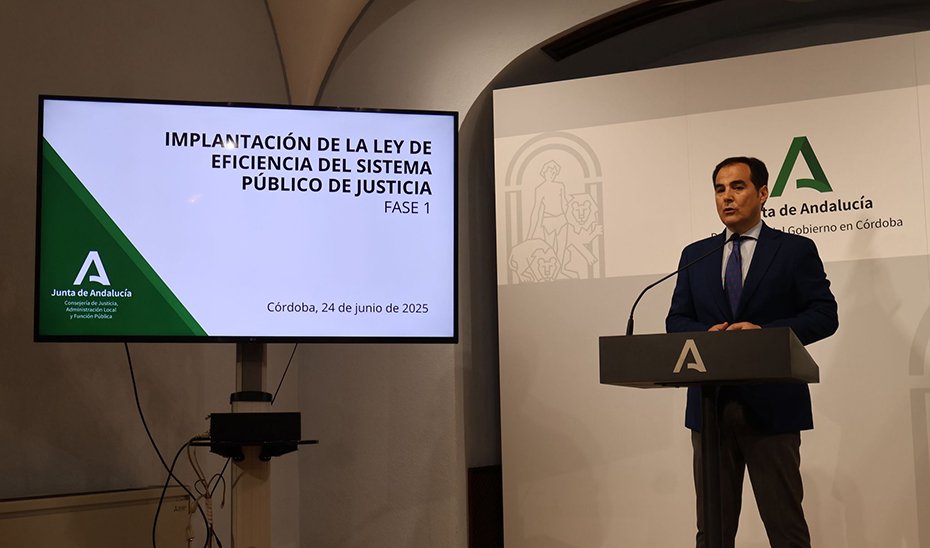The Ministry of Justice, Local Administration, and Civil Service will meet the «strict deadlines» of the new Law on Efficiency in Public Justice Services, which will bring about «the biggest transformation of Justice in decades» and will begin on Tuesday, July 1st with the implementation of the first phase. This involves converting eleven out of the twelve judicial districts in the province of Córdoba into trial courts. Only the capital will maintain its current structure until December 31st, by which date the law must be fully implemented with the last and third phase that includes the capitals and major judicial districts.
The reform, «driven by the Ministry of Justice, but without its financial support,» will bring a radical change in the judicial structure, as it will move from individual organs, led by a judge, a legal secretary of Justice Administration (LAJ), and a team of officials, «to collegiate organs, with a redistribution of officials into procedural processing units and common services,» explained the Minister of Justice, José Antonio Nieto, in a press conference.
Prior to this, during a meeting with legal operators and representatives of the Staff Board in Córdoba, Nieto thanked the judicial staff for their efforts and the concerns and contributions made by professionals. «Since the law was published in January, the Board has not stopped working to adapt Justice to this deep reform in record time, despite the lack of state funding,» he pointed out.
In Córdoba, the Ministry of Justice has bolstered the judicial staff with eight more officials, with an annual budget impact of nearly 400,000 euros. This effort is part of a global regional investment of 57 million euros in Andalucía, necessary for the implementation of the law, which has come «entirely from our own resources,» as the new Law did not include financial allocation when approved.
Another novelty is the municipal Justice offices, which will replace the current Peace Courts, and will have a particularly significant impact in municipalities with higher populations, such as Palma del Río, where this model will be piloted in the province. This will help alleviate congestion in nearby courts like Posadas and bring services closer to the public. The goal is «to handle 85% of judicial procedures from these new offices.»
Gender-based violence and lack of judges
Nieto explained that the implementation of the Law is complicated in Córdoba with the regionalization of gender-based violence courts in Lucena, Cabra, and Pozoblanco. Nieto has criticized the «complete ignorance of the Ministry» about the reality of the Cordoban territory and has demanded a clear response: «Either the courts are kept as they are, or if regionalization is chosen, it must be done based on territorial logic.» Therefore, he has advocated for the southern region of the province, Lucena, to be the regional center; there is no other reasonable option.»
The Ministry has also requested an increase in the number of judges specialized in gender-based violence, proposing «a minimum of 22 new judges compared to a clearly insufficient projection, where only ten judges are allocated.» «Once again, the Ministry marginalizes Andalucía, compared to 60 new judges for Catalonia and none for our community,» the Minister denounced.
Finally, Nieto also expressed concern about the strike called by judges from July 1st to 3rd, coinciding with the entry into force of the new law. «We share the essence of their demands; I hope that an agreement can be reached with the Ministry and that they withdraw their legislative initiative, which only complicates and generates mistrust in the judicial system.»

